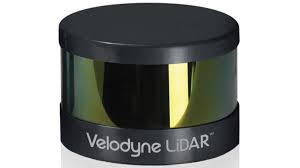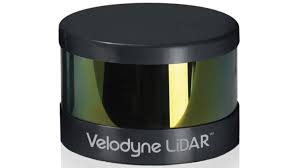
The laser-based sensor for self-driving cars, a key component that would improve vehicle safety, is being prepared to be manufactured by Luminar, a Silicon Valley start-up, the company said on Thursday.
While there is an ongoing race between automakers, startups and major technology companies to roll out self-driving cars for the masses, Luminar, founded in 2012 by two photonics experts, has kept a low profile amidst the din.
Chief Executive of the company, Austin Russell, said in an interview that for its first run of 10,000 Lidar sensors, Luminar is ramping up a manufacturing facility in Orlando, Florida. The manufacturing process is scheduled to begin later this year.
Self-driving cars are allowed to "see" their environment with the help of Lidar sensors that shoots out light pulses that are reflected off objects and reflected back. Lidar stands for Light Detection and Ranging. Along with other sensors such as cameras and radars, many self-driving experts regard this technology as a crucial component for the self driving cars.
And this high end technology for self driving cars has been at the center of a an ongoing trade secrets lawsuit that has been going on between Alphabet Inc unit Waymo and Uber.
Uber had allegedly copied the Lidar system after a former employee stole intellectual property about its Lidar system, Waymo alleges in the legal fight
Hardware that existed before autonomous cars are the basis of the development of Lidars for self-driving cars that are being developed for the market now, Russell said. He noted that they have been made unfit for the safe rollout of self-driving cars at the present moment due to their limitations in range and resolution.
Russell said that 10 times the range of the best rival Lidars and 50 times greater resolution is provided by the new set that is being manufactured by Luminar as it addresses those shortfalls by using a 1550 nanometer wavelength.
He said that from a distance of about 200 meters away, a car can "see" a black object with reflectivity of 10 percent clearly and this is made possible by the use of the new technology. Compared to this, the visual range is just 100 meters for the the so-called "Puck" Lidar offered by Velodyne, a company that makes most of the Lidar used in self-driving prototypes today.
Their products were being tested on prototypes of driverless cars by four companies, including automakers and technology firms which he did not identify, Russell said.
The manufacturers of Lidar products are now concentrating lowering prices to make self-driving cars more affordable for the public, Russell said. He advised that instead of lowering of prices, the manufacturers should focus on the capabilities of Lidar better and near to being perfect.
"As price comes down, performance comes down with it," he said.
(Source:www.reuters.com)
While there is an ongoing race between automakers, startups and major technology companies to roll out self-driving cars for the masses, Luminar, founded in 2012 by two photonics experts, has kept a low profile amidst the din.
Chief Executive of the company, Austin Russell, said in an interview that for its first run of 10,000 Lidar sensors, Luminar is ramping up a manufacturing facility in Orlando, Florida. The manufacturing process is scheduled to begin later this year.
Self-driving cars are allowed to "see" their environment with the help of Lidar sensors that shoots out light pulses that are reflected off objects and reflected back. Lidar stands for Light Detection and Ranging. Along with other sensors such as cameras and radars, many self-driving experts regard this technology as a crucial component for the self driving cars.
And this high end technology for self driving cars has been at the center of a an ongoing trade secrets lawsuit that has been going on between Alphabet Inc unit Waymo and Uber.
Uber had allegedly copied the Lidar system after a former employee stole intellectual property about its Lidar system, Waymo alleges in the legal fight
Hardware that existed before autonomous cars are the basis of the development of Lidars for self-driving cars that are being developed for the market now, Russell said. He noted that they have been made unfit for the safe rollout of self-driving cars at the present moment due to their limitations in range and resolution.
Russell said that 10 times the range of the best rival Lidars and 50 times greater resolution is provided by the new set that is being manufactured by Luminar as it addresses those shortfalls by using a 1550 nanometer wavelength.
He said that from a distance of about 200 meters away, a car can "see" a black object with reflectivity of 10 percent clearly and this is made possible by the use of the new technology. Compared to this, the visual range is just 100 meters for the the so-called "Puck" Lidar offered by Velodyne, a company that makes most of the Lidar used in self-driving prototypes today.
Their products were being tested on prototypes of driverless cars by four companies, including automakers and technology firms which he did not identify, Russell said.
The manufacturers of Lidar products are now concentrating lowering prices to make self-driving cars more affordable for the public, Russell said. He advised that instead of lowering of prices, the manufacturers should focus on the capabilities of Lidar better and near to being perfect.
"As price comes down, performance comes down with it," he said.
(Source:www.reuters.com)





